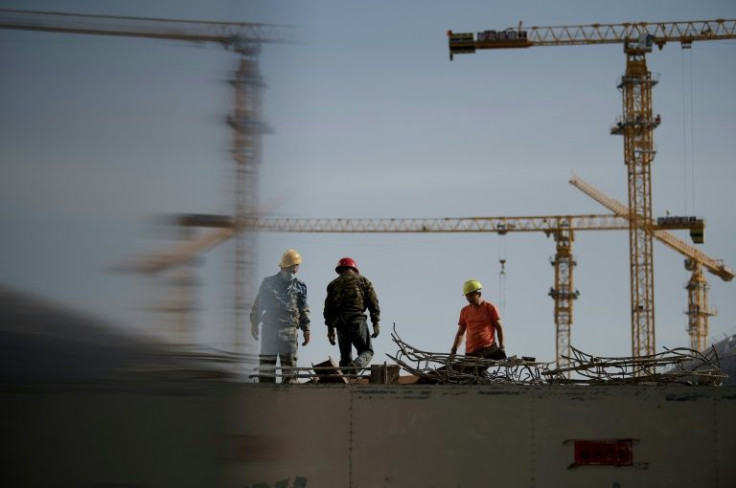Chinese Homebuyers Halt Mortgage Payments On Unfinished Projects
Chinese homebuyers in dozens of cities have stopped making mortgage payments for unfinished projects, according to data from industry groups, worsening fears of financial contagion in the country's troubled real estate sector.
Authorities launched a crackdown on excessive debt in the property sector in 2020, and giants such as Evergrande and Sunac have since struggled to make payments and renegotiate with creditors, leaving them teetering on the edge of bankruptcy.
In the latest blow, a growing number of homebuyers have refused to pay mortgages if developers do not resume construction on units already sold.
As of Wednesday, homebuyers had halted payments for units in at least 100 residential property projects in 50 cities, according to data from research firm China Real Estate Information Corporation (CRIC).
This was up from 28 projects on Monday and 58 on Tuesday, according to a report by analysts at financial firm Jefferies.
"The names on the list doubled every day in the past three days," they said.
These include projects that have experienced significant delays and others that have yet to reach their delivery date, the report said, adding that the incident will dampen buyer sentiment and weigh on a recovery in sales.

The housing ministry held emergency meetings with financial regulators and major Chinese banks this week to discuss the mortgage strikes, Bloomberg News reported Thursday, citing people familiar with the matter.
The regulators requested that local authorities and banks notify them of affected developments in their jurisdictions over fears that more buyers may jump on the bandwagon, the report said.
If every homebuyer defaulted, non-performing loans will increase by 388 billion yuan ($58 billion), Jefferies said.
The buyers' actions came after postponed deliveries of pre-sold homes, unclear delivery times and halted construction, Nomura analysts said in a report Thursday.
"Pre-sales are the most common way of selling homes in China, so the stakes there are high," it said.
"We are especially concerned about the financial impact of the homebuyers' 'stopping mortgage repayments' movement, as China's property downturn may finally adversely affect onshore financial institutions."
The developments come at a time of slowing growth for China and weak property sales, adding to the risk to stability ahead of the Communist Party's 20th Congress this fall, when President Xi Jinping is expected to be given a third term.
© Copyright AFP {{Year}}. All rights reserved.





















